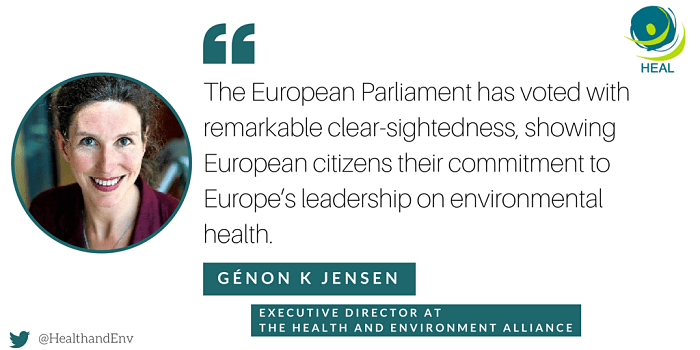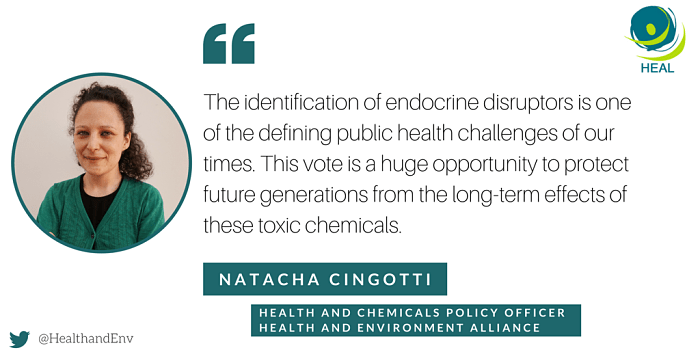HEAL calls on European Commission President Ursula von der Leyen to commit to protecting people’s health from the triple crisis during her second term in a letter. HEAL urges her to safeguard and strengthen the EU climate and environmental acquis for better health, and accelerate on the zero pollution path, including for the foreseen reform of the EU chemicals law REACH.
Brussels, 4 October 2017 – The European Parliament today rejected a controversial European Commission proposal on identification criteria for endocrine disrupting chemicals (EDCs) [1]. The Health and Environment Alliance (HEAL) applauds the courageous decision to veto a proposal that lacks ambition and would fail to protect human health and the environment. Endocrine disruptors are hidden everywhere in our daily environment and evidence of their adverse effects – sometimes decades later and especially for children – is growing by the day.
HEAL alongside several respected scientific societies, important public health voices such as non-profit health insurers, and the EDC-Free Europe coalition have repeatedly warned that the criteria put to vote were insufficient, not grounded in science and not in line with EU law [2].
Génon K. Jensen, HEAL’s Executive Director, said: “The European Parliament has voted with remarkable clear-sightedness, showing European citizens their commitment to Europe’s leadership on environmental health. A proposal that fails to identify the numerous toxic substances that people are exposed to in real-life is the wrong way forward and needs to be reviewed”.

HEAL acknowledges the inspiring commitment to protect human health from the Members of European Parliament (MEPs) who championed a motion for objection to the criteria and echoed the concerns expressed by more than 314,000 citizens [3]. This objection and the final European Parliament vote reflect the need for a truly horizontal European approach to the identification of endocrine disruptors – a long-time demands from scientists, civil society groups and some 314,000 European citizens who asked MEPs to reject these criteria. They are also a slap in the face the numerous corporate-led attempts to delay and derail the process [4].
Natacha Cingotti, HEAL’s Health and Chemicals Policy Officer said: “The identification of endocrine disruptors is one of the defining public health challenges of our times. This vote is a huge opportunity to get the criteria right in order to really reduce our real-life exposure to toxic chemicals and protect future generations from the long-term effects of endocrine disruptors.”

The proposal that was rejected today now has to be reworked. In the meantime, the European Commission is also expected to initiate plans for its promised EDC strategy and fill the numerous gaps that remain in order to ban EDCs from cosmetics, food packaging or toys [5].


